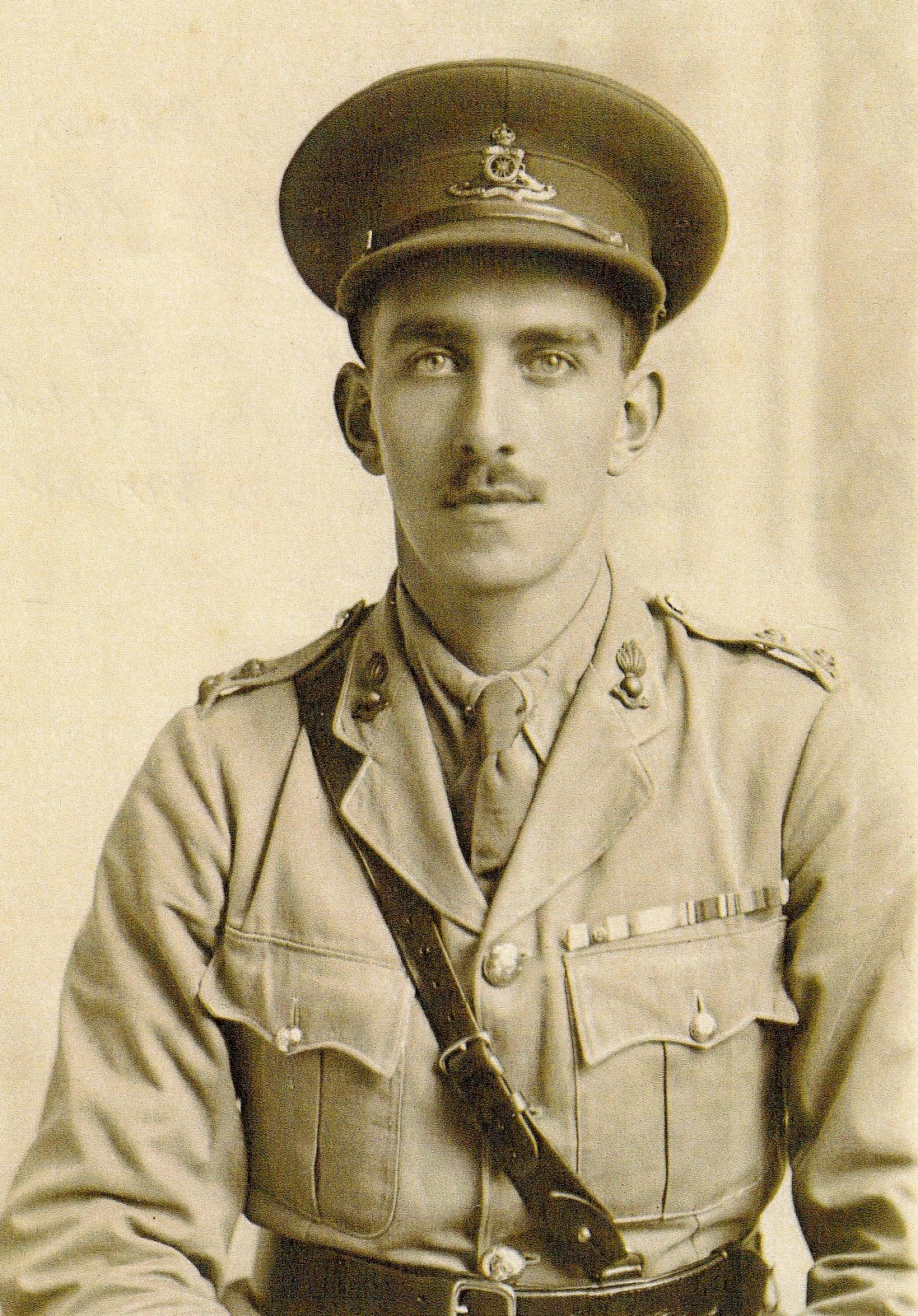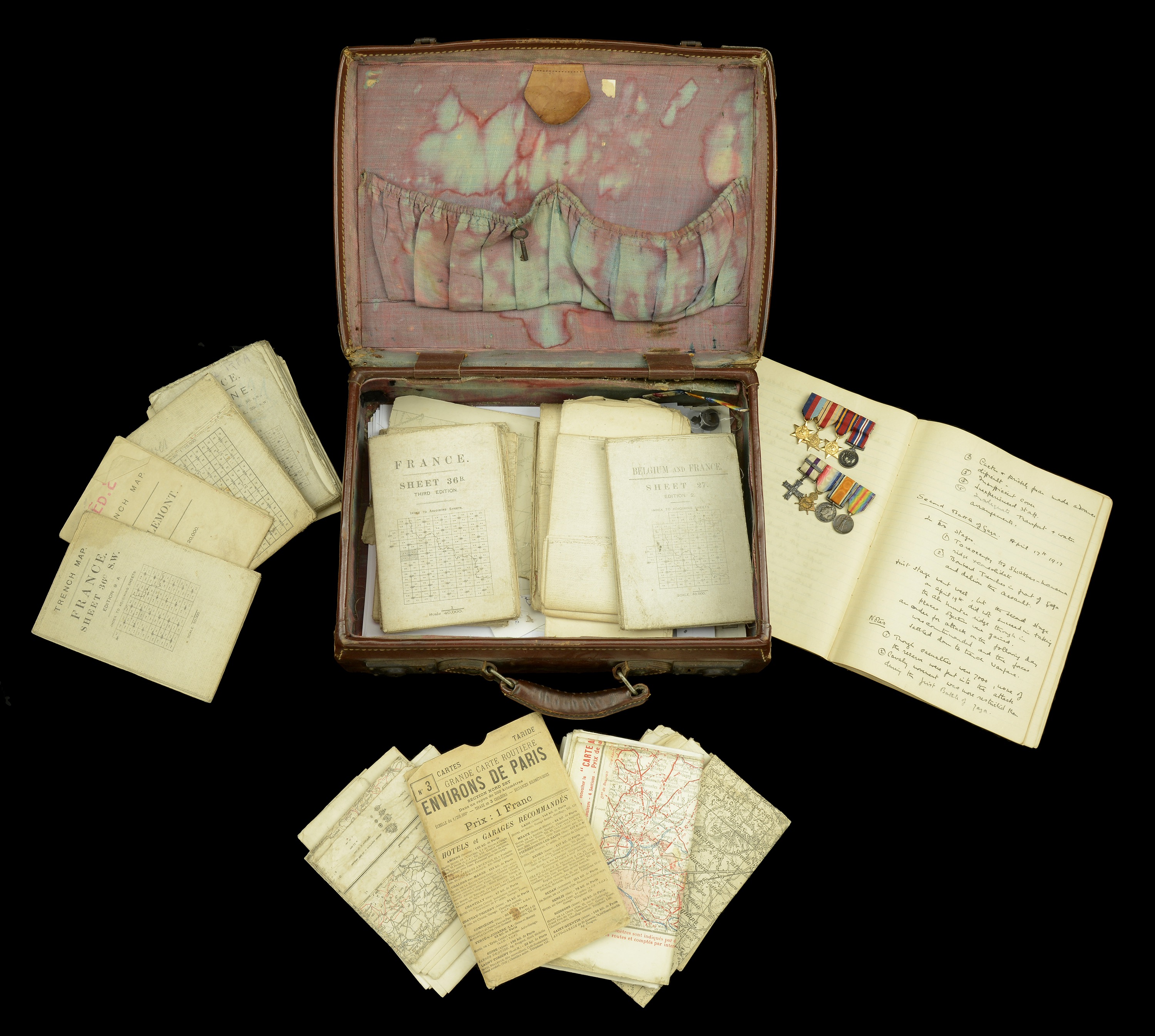A fine Great War ‘Western Front’ M.C. and Second Award Bar group of nine awarded to Brigadier H. H. M. Oliver, Royal Garrison Artillery, who was wounded in 1917, taken Prisoner of War at St. Quentin in 1918, and subsequently served in the jungles of Burma during the Second World War Military Cross, G.V.R., with Second Award Bar, unnamed as issued; 1914-15 Star (2. Lieut. H. H. M. Oliver. R.G.A.); British War and Victory Medals (Lieut. H. H. M. Oliver.); 1939-45 Star; Africa Star; Burma Star; War Medal 1939-45; Jubilee 1935, unnamed as issued, the Great War awards mounted as worn, the later awards loose, contact marks to the Great War awards, therefore very fine; the unmounted awards extremely fine (9) £1,400-£1,800 --- Importation Duty This lot is subject to importation duty of 5% on the hammer price unless exported outside the UK --- --- M.C. London Gazette 26 November 1917; citation published 6 April 1918: ‘For conspicuous gallantry and devotion to duty in maintaining communication as forward observation officer under heavy shell fire. On six occasions he went out himself under heavy fire and mended telephone wires. He also brought in four wounded men who were lying out exposed to fire.’ M.C. Second Award Bar London Gazette 8 March 1918. Henry Herbert Montague Oliver was born at Dharwar, Maharashtra, India, on 22 April 1897, the only son of Edward Graves Oliver, Deputy Conservator of Forests in the Indian Forestry Service, and was sent to England as a baby. Spending his school holidays with Anglo-Irish relatives in Galway, he did not see his parents again until he was 16. Passing fourth into the Royal Military Academy, Woolwich, he was commissioned Second Lieutenant in the Royal Garrison Artillery on 28 July 1915, and served with the Artillery during the Great War on the Western Front from 4 August 1915. Promoted Lieutenant on 1 July 1917, he was reported wounded on 19 October 1917, and the following year was captured and taken Prisoner of War at St. Quentin. For his services during the Great War he was awarded the Military Cross and a Second Award Bar. Following the cessation of hostilities, Oliver served in Ireland during the Irish Civil War, before being posted to India in 1922, and from there to Hong Kong, where he met his Canadian wife, Elizabeth Jones. They were married at the Garrison Church, Aden, on 23 March 1928, ‘attended by all the troops and their dogs, and followed by a reception feast of liver and onions. Their wedding night was spent under the stars at the end of a row of fellow officers’ cots, whose legs were standing in tins of kerosene to keep off the bugs’ (Imperial Vancouver Island Who was Who refers). In 1936, Oliver was posted again to Hong Kong, much to the delight of his family, as recounted by his daughter Elizabeth, who was aged four when they moved: ‘Hong Kong was a wonderful place to be a soldier. Soldiering meant going to the office in the morning, lunch at the Club or the Peninsula Hotel, followed by race meetings at Fanling or Macao in the afternoon and dinner parties at night. We had a Chinese cook, two house boys, a fah wong (gardener), an amah, and a Portuguese nanny - all on a Major's pay! My father kept two race horses, Double Chance, a little grey China pony, and Sea Urchin, an Australian mare. They won the Governor's Cup twice, much to his delight. He rode himself as a 'bumper' or gentleman jockey, being too tall - 6' 1"- and heavy for anything else. They also ran a drag hunt, and we raised two foxhound puppies every year for the hunt.’ Oliver’s posting to Hong Kong came to an end in 1940, and the family returned to England. The following year, with the rank of temporary Brigadier, he was recalled for War service, and served in both North Africa and then in Burma, fighting the Japanese in alien jungle conditions and an appalling climate. As a result, he was to suffer from recurring bouts of malaria for the rest of his life. After a brief spell in command of a territorial unit in Cumberland (an appointment that he took up ‘to improve his pension’), he finally retired to Victoria, British Columbia, in 1947. Following the death of his wife in 1971, he became something of a recluse, ‘his best friends being his neighbours’ dogs’. He died on 8 February 1984 at the age of 86. Sold with the recipient’s small travel suitcase, this inscribed ‘Lt. Col. Oliver. H. H. M.’, and containing a large number of Great War period maps of the Western Front; together with the recipient’s miniature awards (the Great War awards mounted on one bar; the Second War awards mounted on a separate bar; the Jubilee Medal not present; and an additional set of the Great War campaign miniatures); Great War riband bar; Regular Army Reserve of Officers lapel badge; various Military cartoon prints by H. S. Cameron; three photographic images of the recipient; and copied research.









